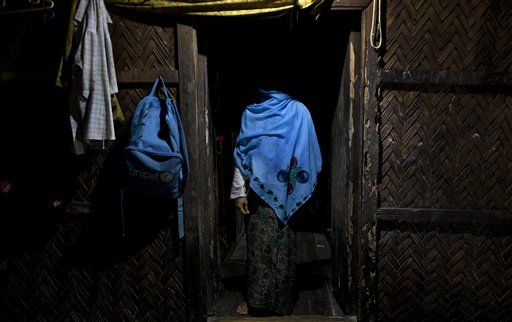Guest contributors
Moon Nay Li and Maggi Quadrini
Every year, the 16-Day Campaign to End Gender-Based Violence is marked globally to raise awareness and visibility of the plight of women and girls who are the majority of victims of violence.
According to the World Health Organization (WHO), one in three women are subjected to physical or sexual abuse in their lifetimes. In Myanmar, women are constantly under the threat of violence, which has been perpetrated by the military for decades.
Earlier this month, the Women’s League of Burma (WLB), a member organization working to increase the participation of women in the struggle for democracy and human rights, reported that women have “endured some of the worst treatment since the takeover, including arrest, torture, sexual assault and even murder.”
Between February 1, 2021 – when the attempted military coup took place – and June 2024, WLB documented nearly 500 cases of gender-based violence, including rape and sexual assault against women. In at least a dozen of these cases, women were raped and then killed by their attackers.
Violence against women has a long and grim history in Myanmar. But much of this violence has been concealed in darkness where the military, in particular, has evaded accountability.
For decades, the military has been carrying a range of systematic and widespread crimes. Under various authoritarian regimes led by power-hungry dictators, the rule of law has been weaponized to benefit the military elite. Cases involving survivors are often dismissed or ridiculed by the military’s top brass.
On top of this, stigma often prevents many women from reporting instances of violence. Since February 2021, the collapse of the country’s justice system has left hundreds of victims without reliable avenues for recourse. The limited options available for seeking justice have led to a steady rise in cases of violence in post-coup Myanmar.
While the world observes and struggles to understand the complex nature of the conflict, those living within the country recognize that justice is long overdue. Women, notably those at the helm of the pro-democracy movement, have persevered in their relentless pursuit of accountability.
In 2022, the Karen Women’s Organization (KWO) noted that “the junta has scaled up attacks in ethnic administration areas, targeting civilians, including in Kawthoolei.” Last year, the Karenni National Women’s Organization (KNWO) found more than 60 cases of violence against women, with psychological violence ranked highest, followed by physical and sexual violence.
The Burmese Women’s Union (BWU) recently reported several instances of violence against women across the country, with Sagaing Region reporting the highest number of women killed in October 2024. The Rohingya, who continue to be persecuted in an ongoing genocide, also face disturbing rates of sexual violence.
Amid the increased targeted gender violence, the 16 Days Campaign is even more relevant. In Myanmar, women’s organizations are dedicated to ensuring that the success of the pro-democracy movement is rooted in ending all forms of violence.
These locally-led groups are active in villages nationwide, where they conduct regular awareness-raising sessions for both men and women to enhance their understanding of why violence is not the solution.
For women who cannot find a safe haven, women’s groups provide secure Safe Houses, offer psychosocial support, and therapeutic activities such as cooking, sewing, and painting.
Emboldened by the hope of a better future, past and present generations of women are working together to transcend gender norms and stereotypes. Women are a critical force in the resistance, from the frontlines to providing life-saving humanitarian assistance.
Despite the uncertainty and fear confronting their communities, women refuse to be silent. Their voices and leadership have created new opportunities for young women to be heard as the revolutionary movement strives to be more inclusive of feminist-forward policies and advocacy.
Women have adopted new roles and responsibilities during this conflict period to meet their communities’ needs. Often, these roles promote women’s leadership in decision-making positions to ensure a more peaceful and just society in Myanmar.
A report published by WLB in January this year found that more than two-thirds of the twenty-one ethnic women they interviewed had been involved in some form of non-violent action since the 2021 coup.
Nearly 100 percent were engaged in humanitarian relief work, and at least 50 percent took on new political positions in emerging local governance systems.
Every day, the fight for women’s agency and their demands for justice against endemic violence must be met with unwavering action—rejecting patriarchal mindsets and embracing a future of true equality.
The people’s revolution will only succeed when equality is realized for all, transcending ethnicity, gender, socio-economic background, and religion. Only then can justice prevail.
Moon Nay Li was elected as a Joint General Secretary of the Women’s League of Burma (WLB) in December 2022. She is a former General Secretary of the Kachin Women’s Association Thailand, and she has worked as a women’s human rights defender for more than 18 years
Maggi Quadrini works with community-based organizations along the Thai-Myanmar border, focusing on gender equality and localized approaches.
DVB publishes a diversity of opinions that does not reflect DVB editorial policy. We’d like to hear what you think about this or any of our stories: [email protected]



